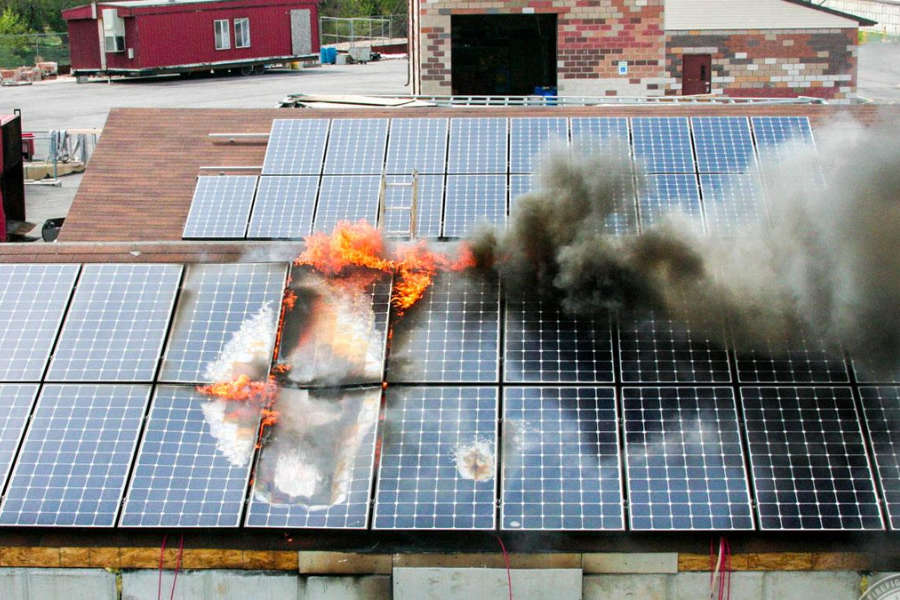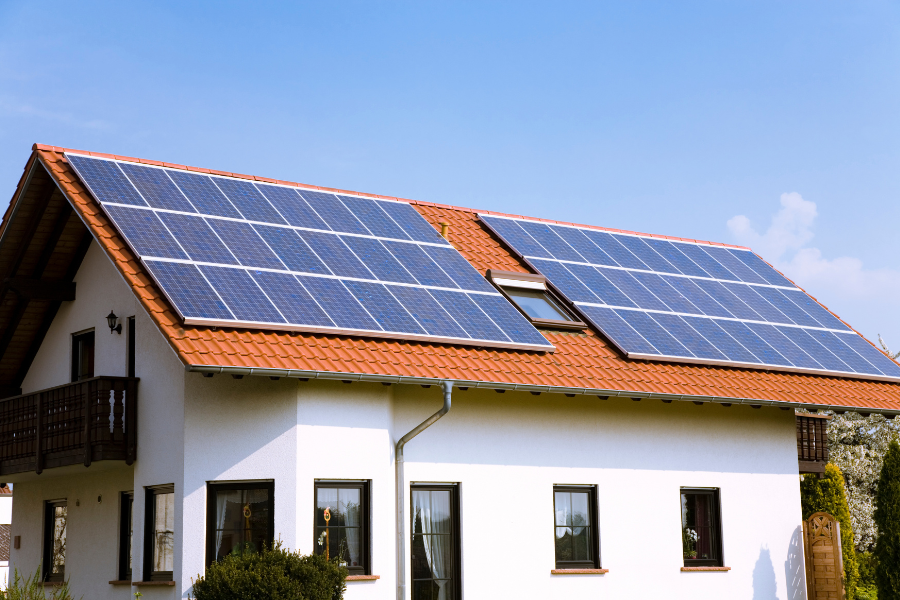- Solar Basics
Solar Panel Fire: Causes, Prevention, and Safety Tips
Solar energy is a smart choice for Filipinos, but fire risks can arise from faulty wiring or poor installation. Learn key safety tips—hire certified installers, use quality components, and maintain your system—to keep your solar panels safe and efficient.
Share to:

Introduction:
Solar energy has become an increasingly popular choice in the Philippines, offering both environmental benefits and significant cost savings. However, as with any electrical system, it’s essential to be aware of potential fire risks associated with solar photovoltaic (PV) installations. While incidents are rare, understanding the causes and implementing preventive measures can ensure the safety and longevity of your solar investment.
Common Causes of Solar Panel Fires in the Philippines
Faulty Wiring and Connections: Improperly installed or damaged wiring can lead to electrical faults, increasing the risk of fires. Regular exposure to the Philippines’ tropical climate can cause wear and tear on these components.
Substandard Components: Using low-quality or counterfeit solar panels and accessories can compromise the system’s integrity, leading to potential hazards.
Poor Installation Practices: Engaging unqualified installers can result in inadequate system setup, posing significant safety risks.
Environmental Factors: Accumulation of debris, such as leaves or bird nests, can obstruct ventilation and cause overheating. Additionally, the Philippines’ high temperatures can strain electrical components.
Preventive Measures for Solar Panel Fire Safety
Hire Certified Installers: Ensure that your solar system is installed by professionals who adhere to industry best practices and comply with local regulations.
Use High-Quality Components: Invest in certified and reliable solar panels, inverters, and electrical components to minimize malfunction risks.
Regular Maintenance: Schedule periodic inspections to detect and address potential issues like loose connections or damaged wiring. Cleaning the panels to remove dirt and debris is also crucial.
Install Monitoring Systems: Implement systems that provide real-time data on your solar panel’s performance, helping to identify anomalies that could indicate potential fire hazards.
Collaborate with Local Fire Departments: Work with local fire authorities to develop emergency response plans tailored to your solar installation.
Philippine Standards and Guidelines
The Philippine Department of Energy has established the “Solar Safety, Health, and Environment Code of Practice” to guide the safe installation and maintenance of solar PV systems. Key recommendations include:
Regular inspections for dirt accumulation, such as dust or bird droppings.
Use of personal protective equipment (PPE) during maintenance activities.
Compliance with the latest Philippine Electrical Code for all electrical works.
Conclusion
Solar energy remains a safe and efficient choice for Filipino households and businesses. By understanding potential fire risks and implementing preventive measures, you can ensure the safety, reliability, and efficiency of your solar PV system. Always prioritize quality components, professional installation, and regular maintenance to harness the full benefits of solar power in the Philippines.
Table of Contents
Subscribe to our Newsletter
Latest
From the Blog
The latest industry news, interviews, technologies, and resources.



